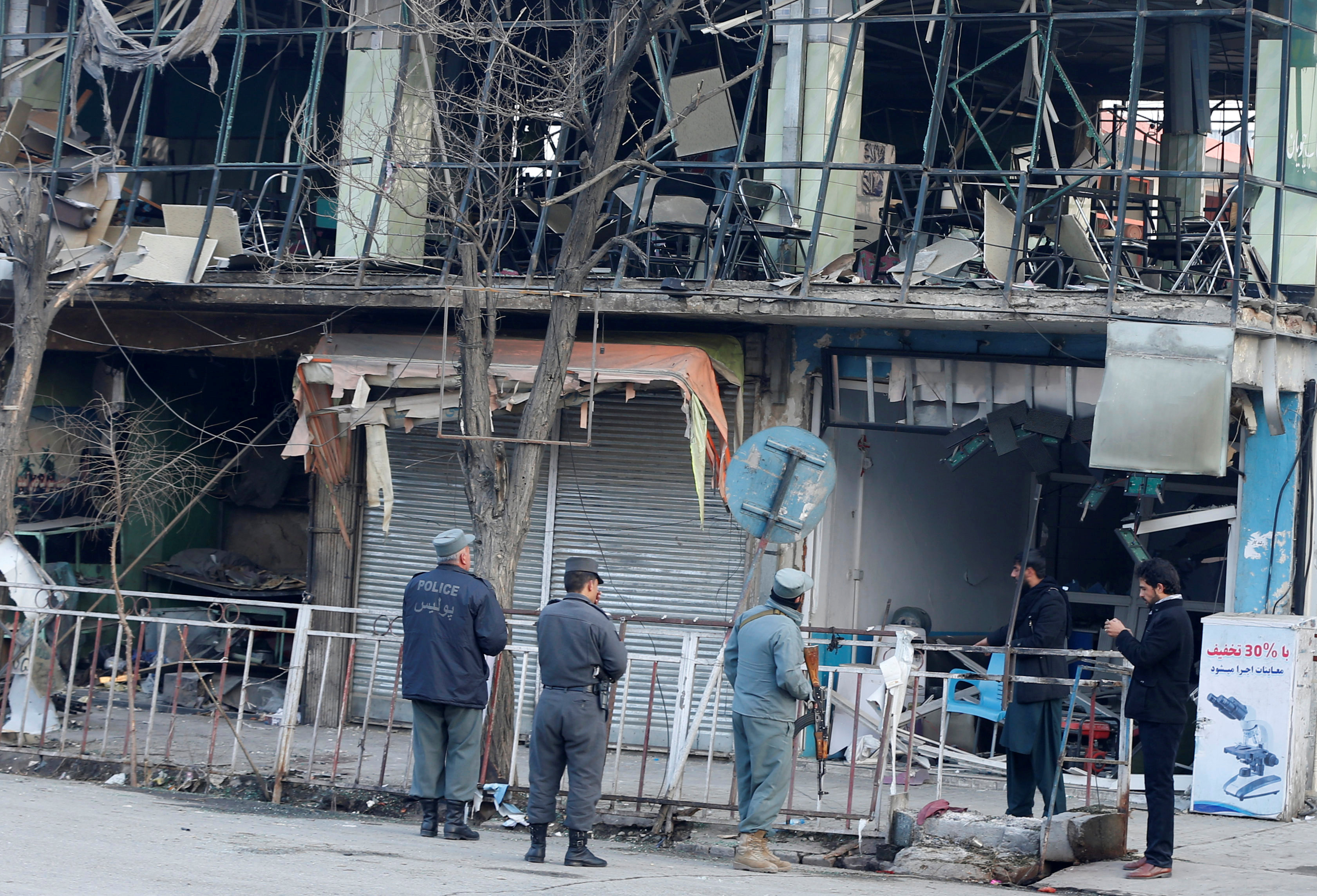Afghan policemen inspect the site of a bomb attack in Kabul, Afghanistan, January 28, 2018. REUTERS/Omar Sobhani

By Akram Walizada
KABUL (Reuters) – Kabul reacted in despair and fear on Sunday, a day after a suicide bomb in the centre of the city killed and wounded more than 250 people in the worst attack seen in the Afghan capital in months.
With security officials warning that more attacks were possible after an ambulance packed with explosives blew up in a crowded city street on Saturday, there was a mix of helpless anger at the seemingly endless wave of attacks.
“How are we to live? Where should we go?” asked shopkeeper Mohammad Hanif, who was in his shop near the site of the explosion when it went off.
“We have no security, we don’t have no proper government, what should we do?” he said.
At least 95 people were killed and 158 wounded in the blast, which was claimed by the Taliban, a week after they claimed a deadly attack on the city’s Intercontinental Hotel.
It was the worst attack seen in the Afghan capital since a truck bomb near the German embassy killed 150 people in May.
“People were running everywhere to escape, there were wounded people lying on the ground, people with wounds to their arms, legs, heads,” Hanif said.
After a deadly week in which an office of the aid group Save the Children in the eastern city of Jalalabad was also attacked, President Ashraf Ghani’s Western-backed government has faced growing pressure to improve security.
Despite a major tightening in checks following the May 31 attack, the ambulance was able to get through the checkpoints, apparently without difficulty.
“People don’t have work, there’s no life for people in Afghanistan, people have to look for a life somewhere else, there’s nowhere,” said shopkeeper Sameem.
A man reacts after hearing his son was killed during a car bomb attack in Kabul, Afghanistan January 27, 2018. REUTERS/Omar SobhaniThe attack, described as “an atrocity” by the head of the U.N. mission in Afghanistan, drew universal condemnation from allies and neighbouring countries.
U.S. President Donald Trump, who last year sent more American troops to Afghanistan and ordered an increase in air strikes and other assistance to Afghan forces, said the attack “renews our resolve and that of our Afghan partners”.
U.S. officials have said that the new strategy is putting pressure on the Taliban.
Following a recent visit to Kabul, the U.S. ambassador to the United Nations, Nikki Haley, said the strategy was working and pushing the insurgents closer to peace talks.
However, the Taliban have dismissed any suggestion that they have been weakened by the U.S. approach and say they will only agree to talks when international forces leave Afghanistan.
The attack, in one of the most heavily protected parts of the city, close to foreign embassies and government buildings, demonstrated that their ability to mount deadly high profile attacks that undermine confidence in the government remains undiminished.
(Reporting by James Mackenzie; Editing by Robert Birsel)
Copyright 2018 Thomson Reuters. Click for Restrictions.


